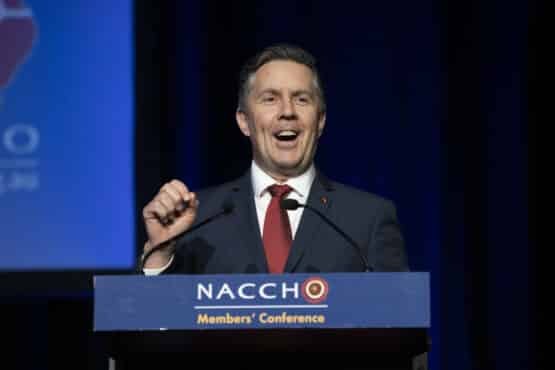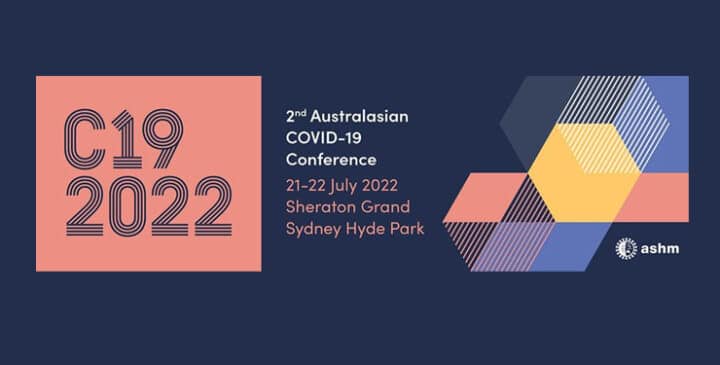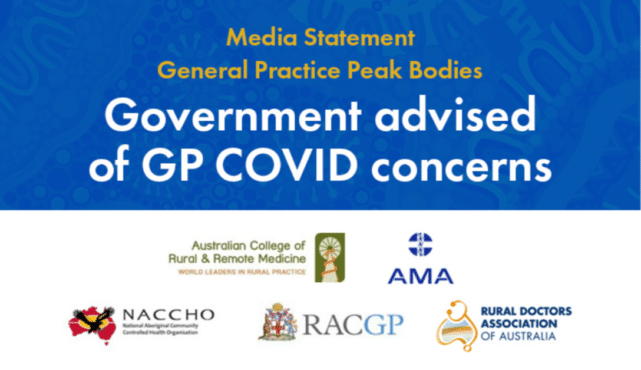

Aboriginal and Torres Strait Islander Advisory Group on COVID-19, 15 October 2020
The Aboriginal and Torres Strait Islander Advisory Group on COVID-19 (the Taskforce) convened in March 2020 to develop and deliver a National Management Plan to protect communities. The Group also advises on health issues related to COVID-19. This Taskforce is co-chaired by the National Aboriginal Community Controlled Health Organisation (NACCHO), and the Australian Government Department of Health. This communique provides an update on their work and current key focus areas.
Current status of coronavirus
As of 14 October 2020, a total of 27,341 cases of COVID-19 have been reported in Australia. This includes 24,896 recovered cases and unfortunately 904 deaths. Since 16 September 2020, active case numbers nationally continue to decline. For further details please refer to the COVID-19 fortnightly national epidemiological report or the COVID-19 current situation which is updated daily.
As at 13 October 2020 there have been 146 cases reported in Aboriginal and Torres Strait Islander people. Approximately 80% of cases were reported as locally acquired. Of those, more than 75% were reported in major cities. Approximately 20% were reported in inner or outer regional Australia, 1% reported in remote/very remote Australia and 4% were reported as interstate travel. Approximately 20% of all cases are reported as being acquired overseas with approximately half of these associated with cruise ships.
While still distressing, the strength of the Aboriginal and Torres Strait Islander response by communities, Aboriginal Community Controlled Health Sector, health services, and everyone involved shows in these numbers. The number of cases among Aboriginal and Torres Strait Islander people is six times lower than if the population was affected at the same rate as the rest of Australia. Efforts to date to protect Aboriginal and Torres Strait Islander peoples are working. However, it is important to ensure that messaging continues to reach communities to promote the need to maintain public health measures.
2020-21 Federal Budget, and Primary Care Response Measures
The 2020–21 Budget delivers a record $115.5 billion in 2020–21 and $467 billion over the forward estimates to deliver the essential health services Australians need under the Long Term National Health Plan. The 2020–21 Budget funds the Government’s ongoing health response under the Australian Health Sector Emergency Response Plan, extending initial key COVID-19 health initiatives. This includes Point of Care Testing, GP-led Respiratory Clinics and Medicare Benefits Schedule telehealth items.
The Budget also provides $4 billion in Aboriginal and Torres Strait Islander health funding over the coming four years, including $975.5 million in 2020–21. It builds on the Government’s efforts to work in partnership with Aboriginal and Torres Strait Islander people to improve health outcomes.
Please see the Prime Minister’s Media Release and Minister Hunt’s Media Release for more information.
General Practice-led Respiratory Clinics (GPRCs)
All 23 Aboriginal Community Controlled Health ServiceGPRCs are now open with the final site, Innisfail, opening on 6 October 2020. The additional funding announced by the Prime Minister on 18 September 2020 and formalised in the Budget provides these clinics with the option of remaining open until 31 March 2021.
This brings the cumulative total of GPRCs across the country to 150.
Point of Care Testing (PoCT) Program
The Australian Government has provided support to establish a rapid COVID‑19 PCR PoCT Program for remote and rural Aboriginal and Torres Strait Islander communities. As at 13 October 2020, 86 PoCT sites have been approved and of those, 81 sites are active. Over 4,700 tests have been performed. Aboriginal and Torres Strait Islander people make up nearly 57% of the tests, showing that the sites have been well-placed. The PoCT sites are:
| Northern Territory | Western Australia | South Australia | New South Wales | Victoria | Queensland |
| Ali Curung Alpurrurulam Alyangula Ampilatawatja Borroloola Bulman Alice Springs – (Congress) Daly River Galiwin’ku Gunbalanya Julanimawu Kalkarindji Kintore Laynhapuy Maningrida Milingimbi Minyerri Ngukurr Numbulwar Papunya Ramingining Tennant Creek Timber Creek Wadeye Wugularr Yarralin Yuendumu Yulara | Balgo Beagle Bay Bidyadanga Billiluna Blackstone Carnarvon Derby Fitzroy Crossing Halls Creek Jigalong Kalgoorlie Kalumburu Kiwirrkurra Kununurra Laverton Meekatharra Mount Magnet Tjuntjuntjara Warakurna Warburton Wiluna | Amata Ceduna Coober Pedy Ernabella Indulkana Oak Valley Port Augusta Pipalyatjara Yalata | Broken Hill Coomealla Moree Narooma Walgett | Mildura Mooroopna | Aurukun Badu Boigu Cooktown Lockhart River Pormpuraaw Saibai Weipa Wuchopperen |
Additional funding announced on 18 September will continue the PoCT program until 31 March 2021.
Mental health and suicide prevention
The COVID-19 pandemic has put pressure on the mental health and wellbeing of many Australians. The Taskforce has been pleased to receive updates about activities to support and protect mental health and wellbeing for all Australians, and continued to raise the importance of engaging with the ACCHO sector to provide culturally safe mental health support. Recent activities and announcements include:
- The launch and first release of data from the Australian Institute of Health and Welfare (AIHW) national suicide and self-harm monitoring project;
- 15 mental health hubs have recently opened in Victoria, with funding for 12 months. Local public health networks have the responsibility of working with Victorian Aboriginal Community Controlled Health Organisations to ensure connections to usual healthcare and cultural safety; and
- providing 10 additional Medicare subsidised therapy sessions for people subjected to further restrictions in areas impacted by the second wave of the COVID-19 pandemic. This will allow people in eligible areas who have used their first 10 sessions to continue to receive mental health care from their psychologist, psychiatrist, GP or other eligible allied health worker.
Telehealth
The Australian Government announced the extension of temporary COVID-19 MBS (Medicare Benefits Schedule) and Primary Care Telehealth services. This shows a commitment to continue working with doctors and community on the best long-term arrangements. This will further support Aboriginal and Torres Strait Islander people throughout COVID-19.
Details are included in the Federal Budget factsheet and in Minister Hunt’s media release.
Release of remote community modelling
The Minister for Health and Minister for Indigenous Australians have jointly released the scenario of modelling of COVID-19 transmission for remote communities. They have also released the updated National Guidance for remote Aboriginal and Torres Strait Islander Communities for COVID‑19.
The Taskforce worked with the University of Melbourne and the Kirby Institute for Pandemic Modelling to develop the scenario modelling of COVID-19 transmission for remote and regional communities across Australia. The modelling was guided by the Taskforce to ensure the scenarios correctly reflected experiences on the ground as much as possible. Overall, the major findings of the modelling are:
- an uncontained outbreak in a remote community will spread rapidly, due to overcrowded housing, close mixing in groups, and between interconnected households;
- early case detection with testing and rapid availability of test results (within two days) is critical;
- effective isolation of cases and quarantine of contacts are essential for outbreak control;
- proactive testing of extended household members at baseline improves outbreak control, but only if results of tests are available within two days;
- immediate stay at home orders (lockdown) for 14 days is a highly effective strategy to limit the size and duration of the outbreak. This will work only if high compliance is maintained; and
- clearance or exit testing of all those in quarantine or lockdown on day 12 (so that results are available by day 14). This significantly reduces the likelihood of subsequent waves of infection and the total number of tests needed during the outbreak.
The findings above support the response to date. This includes:
- funding for remote community preparedness;
- support for early medical evacuations and retrievals;
- access to testing provided through point of care; and
- funding to the ACCHO sector to facilitate culturally safe access to COVID-19 testing.
These measures aim to mitigate the risks for Aboriginal and Torres Strait Islander peoples. Further, these actions reflect the advice in Management Plan for Aboriginal and Torres Strait Islander Populations and other national guidance documents.
To assist remote community residents, leaders and health services, two documents have been developed to support locally-led responses:
- a plain language summary of the research in the form of a PowerPoint presentation to support community level discussion and planning; and
- more detailed information for public health and clinical staff.
COVID-19 Vaccine Strategy Taskforce overview
The Australian Government has established a cross-department Vaccine Taskforce to focus on development, securing access and distribution of any future COVID-19 vaccine. The Vaccine Taskforce has, and will continue to engage with the Taskforce to ensure Aboriginal and Torres Strait Islander perspectives are included in all stages. They will also ensure there is a formalised engagement with the Aboriginal and Torres Strait Islander health sector.
The Taskforce received a further update from the Vaccine Taskforce on 14 October.
Developing guidance for urban and regional communities
This document will complement and expand on relevant aspects of:
- the Communicable Diseases Network Australia (CDNA) Series of National Guidance for Public Health Units on COVID-19 (the COVID-19 SoNG)
- the CDNA National Guidance for Remote Aboriginal and Torres Strait Islander Communities for COVID-19.
On 12 August 2020 the Australian Health Protection Principal Committee (AHPPC) endorsed the National Guidance for Remote Communities. The AHPPC also suggested that similar guidance be developed for urban settings.
The Urban Guidance Working Group recommends and has agreed to develop a national guidance document for Aboriginal and Torres Strait Islander people living in urban and regional settings. The Working Group is developing a principles-based guidance document for the Aboriginal and Torres Strait Islander Community Controlled Sector and public health units that focus on both urban and regional settings. Jurisdictional experiences of managing outbreaks in urban and regional settings (e.g. Melbourne and regional Victoria, Brisbane, Sydney) will inform this work. Once the Taskforce endorses this, it will be provided to AHPPC for endorsement.
National Surveillance Plan
The Australian National Disease Surveillance Plan for COVID-19 describes a national approach to the ongoing, systematic collection, analysis and interpretation of health-related data. This plan will help to inform public health measures for control of COVID‑19 in Australia, containing key considerations for Aboriginal and Torres Strait Islander populations. However, the Taskforce has identified a need to develop more detailed and targeted considerations for Aboriginal and Torres Strait Islander people to incorporate into the plan. The Taskforce established the Surveillance Plan Working Group to ensure the National Plan collects, analyses and reports data in a culturally appropriate way.
ABSTUDY boarding school students
The Department of Social Services (DSS) provided the Taskforce with an overview regarding safe travel plans for ABSTUDY boarding school students. Safe travel plans have been a requirement of ABSTUDY since before COVID-19 so that they can travel safely to and from school. This ensures that students and schools have clear travel plans, contingencies for interrupted travel and key contact details. The travel uncertainties of COVID-19 and changing border requirements provides a sharpened focus on the need for comprehensive safe travel plans. DSS advised that they have been working closely with Services Australia to provide early data to states and territories as school holidays are approaching. This includes details about the students and their travel plans. Information was also provided to the Taskforce on the numbers of students that Services Australia manages the travel bookings for.
This information will assist members to support relevant communities and provide further understanding around the boarding school students returning to their jurisdiction.
Other related news
One of the key strengths of the Taskforce has been raising new and emerging issues and sharing current response strategies. The Taskforce receives weekly updates from Victoria regarding the current outbreak, as well as updates from other jurisdictions on relevant issues.
The Australian Government Department of Health’s Mental Health Division recently updated the Taskforce. This follows the Prime Minister announcing $12 million on 6 August 2020 to support existing mental health services such as:
- $5 million for Headspace for assertive outreach, particularly year 11 and 12 students
- $2.5 million for Beyond Blue to extend live webchat to operate 24/7
- $2.5 million for Lifeline
- $2 million for Kids Helpline
- Additional $5 million for specialised phone support services – eating disorders and LGBTIQ+ support services, mainly focused on Victoria but available nationally.
Department of Health’s Victorian aged care response (VACRC) team provided an overview of their team’s responsibilities and key learnings to date. They also advised on how these lessons may translate to a response if there is an outbreak in a remote Aboriginal or Torres Strait Islander community.
Key learnings include the importance of:
- Good preparation with a tested outbreak management plan;
- Strong leadership providing staff confidence and trust of families;
- Infection control – a clear plan for cohorting residents, PPE training and induction; and
- Good relationships and communication channels with health services for families, residents and everyone involved.
Key consideration for an outbreak in a remote Aboriginal or Torres Strait Islander community may be:
- Communication – with the community and home health care providers;
- where would the surge workforce come from? How would they be inducted to provide culturally safe care?; and
- Operation of ‘normal’ services, when the majority of staff are not ’your own’.

